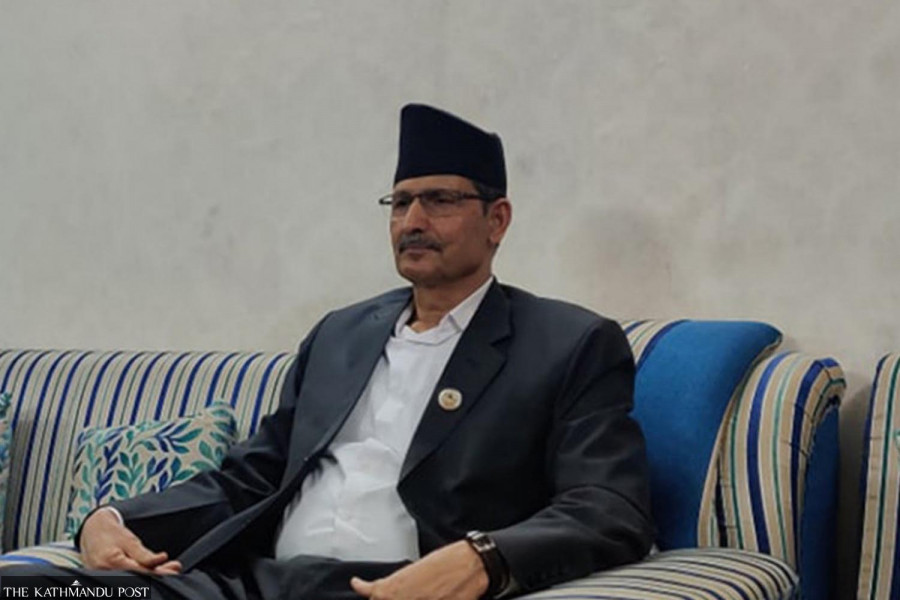
Arjun Bahadur Lama, 45, was attending a meeting at a local school in Dapcha in Kavrepalanchok district on April 29, 2005, when a group of then CPN-Maoist combatants spirited him away, saying they wanted to talk to him about something. The rebels never let him go.
A subsequent probe by the National Human Rights Commission concluded that the Maoists had killed Lama following the abduction. His family members accused Maoist leaders Agni Sapkota and Suryaman Dong, among others, of abducting and murdering Lama. Sapkota and Dong, however, reject the accusation. The frequent attempts of Purnimaya, Arjun’s wife, to register a first information report was turned down by the Kavrepalanchok district police, prompting her to knock the Supreme Court’s door on March 3, 2008 asking for its intervention in the case.
Sapkota got elected to parliament from Sindhupalchok thrice after the complaint was lodged and went on to become a Cabinet member and then the Speaker.
After submitting a few quarterly reports, the police stopped updating the court on the progress in the investigation. Meanwhile, in 2011, Sapkota was appointed the Minister for Information and Communication. A public interest litigation was filed by a group of human rights defenders challenging his ministerial appointment. They argued that Sapkota as a minister could influence the investigation.
Although the court refused to issue an interim order against his appointment, it raised serious concerns over lack of progress in the investigation. The court, however, said that as Sapkota was under investigation, it was up to him and his mother party to make a moral judgement about whether he should resign.
In March 2016, the court decided that the Constitutional Bench would henceforth hear the petitions filed by Purnimaya and civil society members. Since, the hearing has been deferred 45 times. The hearing scheduled for Wednesday was also postponed citing the court’s busy docket.
“This is too much. Not just the police but even the court seems to fear Sapkota,” Purnimaya told the Post. “When will the court get time to hear our plea? I have lost all hope for justice.”
The writ petitions in Lama’s case have been slated for hearing 52 times in the past 15 years, and deferred 45 times by placing it in low priority. Despite serious objections from the victim’s family, domestic and international human rights organisations, as well as activists, the Maoist Centre, whose chief is currently the prime minister, has been repeatedly rewarding Sapkota.
Human rights activists who had lodged writ petitions against Sapkota say the repeated deferrals by the Supreme Court are deliberate. “These postponements are a part of the conspiracy to shield the accused,” Sushil Pyakurel, a human rights activist who is also one of the petitioners, told the Post. “Despite knowing about Wednesday's hearing, I didn’t go to court, as I knew it would be postponed again.”
He said the court would not have postponed hearings on these petitions for 12 years if it was serious about delivering justice. “Our judiciary doesn’t dare to challenge Sapkota and his party,” said Pyakurel.
Officials at the Advocacy Forum, a non-government organisation that has been supporting Purnimaya in the legal fight, say the judiciary needs to be proactive in giving justice in insurgency-era cases of human rights violations since the transitional justice mechanisms are not functioning.
The Truth and Reconciliation Commission and the Commission of Investigation on Enforced Disappeared Persons have been rendered ineffective since July last year when the terms of their chairs and members were allowed to lapse. The two commissions have between them received around 66,000 insurgency-era complaints over the past several years, but no action has been taken in any of them.
“On the one hand, the transitional justice commissions are not functioning and on the other hand, the judiciary is repeatedly deferring crucial hearings. What should the victims do to get justice?” Bikash Basnet, a programme manager at the Advocacy Forum, questioned, talking to the Post. “We were expecting some ruling on Purnimaya’s case but that didn’t happen. These deferrals are no coincidence, but deliberate.”












